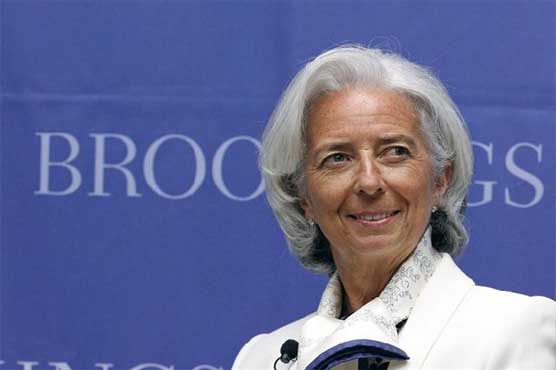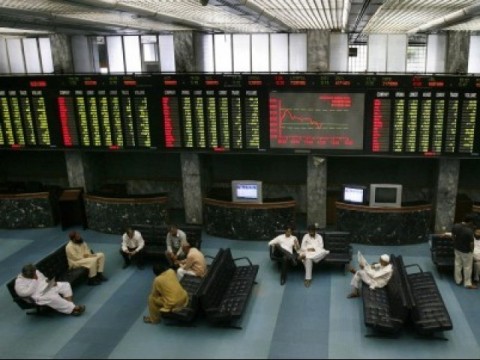- Web
- Humsa
- Videos
- Forum
- Q2A



WASHINGTON (AP) - A years-long court battle in New York could have major implications for the world s financial system as investors seek to recover unpaid debts from Argentina s massive 2001 default.
Global finance officials fear a victory by creditors could make it more difficult to put together an international financial rescue package like the one that pulled the Greek economy from the brink of collapse in the past few years.
Those concerns have put the U.S. government and the Washington-based International Monetary Fund in an awkward position. They have both criticized Argentina s handling of its economy. But they fear a judgment against the Latin American country in this case could set a dangerous precedent.
"It has nothing to do with Argentina," IMF spokesman William Murray said Thursday. "It has to do with the principles, the policy implications of a particular legal case."
The concerns arose again this week as the IMF contemplated formally backing Argentina in the court case. After the U.S. opposed that plan, the international lending agency decided against doing so, saying it was wary of taking sides in a U.S. legal dispute.
But the IMF clearly worries that a ruling against Argentina could make it difficult to craft future rescue packages that call for a country s creditors to accept less than what they are owed.
The U.S., which has supported Argentina at earlier stages of the case, said Wednesday it shares the concerns even though it had opposed IMF involvement in the case. The IMF was considering filing a friend-of-the-court brief in support of Argentina s petition to the U.S. Supreme Court to overturn a lower court s ruling against it.
The case stems from Argentina s financial crisis a dozen years ago when the government could not pay its debts and Argentine bonds became nearly worthless. As the country tried to get its finances in order, it offered creditors new bonds that initially paid less than 30 cents for each dollar of bad debt. More than 90 percent of bondholders agreed and some of them have since recovered three-quarters of their pre-default investment.
But a small fraction of bondholders, some of whom bought the debt securities at cut-rate prices during the crisis, say Argentina should pay them the face value of the bonds, plus interest. Investment fund NML Capital and 18 other creditors sued and a lower court ordered Argentina to pay $1.4 billion.
Normally, it would be difficult for plaintiffs to collect on such a ruling. But the judge granted their request for an unprecedented mechanism to force Argentina to pay: Using the U.S. funds transfer system, it automatically zips trillions of dollars a day around the world, to block the payments Argentina makes to all the other bondholders unless it also pays the plaintiffs.
That worries the United States and the IMF. When a country is basically insolvent, the IMF often steps in and helps craft a package that may force the country to overhaul its finances and also pressure creditors to accept restructured or reduced debt.
If the lower court ruling is upheld on appeals, the IMF says that would make it less likely that the majority of creditors in any future bailout would agree to complex debt restructurings like the one Greece recently went through. Bondholders would have less incentive to reduce their claims on the country down to levels where payments can be met.
"If this makes debt relief harder, the IMF s job is made much harder," said Anna Gelpern, senior fellow at the Peterson Institute for International Economics and a law professor at Georgetown University.
Charles R. Blitzer, former IMF official and a consultant with significant experience in debt restructurings like Argentina s, said the U.S. and IMF concerns are overblown and not based on evidence or careful analysis.
The ruling, according to Blitzer, would only be applicable to a very few cases because the language in the bond contracts was unusual. The case revolves around clauses in the original 1990s bond contracts that gave equal rankings for all kinds of debt.
Secondly, the ruling was explicitly a reaction to Argentina s behavior toward creditors, such as its unwillingness to negotiate and obey other court orders, Blitzer said. He also noted many recent bond contracts have collective action clauses that allow a majority, say 75 percent, to determine whether all bondholders go along with a debt restructuring.
The judge s ruling to force Argentina to pay using the U.S. funds transfer system prompted alarm reflected in a flood of legal briefs from U.S. banks, the Federal Reserve, the U.S. government and other institutions, warning of serious damage.
The Federal Reserve and the Clearing House, a trade group representing the world s largest commercial banks, told the judge to make sure his order won t affect the U.S. funds transfer system.
The entire system depends on transfers being "immediate, final and irrevocable" when processed, the Federal Reserve said. Requiring intermediaries to identify, stop and divert payments according to court orders "would impede the use of rapid electronic funds transfers in commerce by causing delays and driving up costs."
Argentina says it cannot possibly comply with the judge s order without ruining its economic recovery. The country has been unable and unwilling to issue new bonds in foreign currency because of the case as it would have to pay prohibitive interest rates. Anyone wanting to insure current Argentine debt against another default must pay the highest prices in the world.
 The Canadian Securities Institute (CSI) will offer training courses for capital market professionals in Pakistan, in partnership with the Pakistan Society of Technical Analysts (STAP). These programmes will be tailored to local regulatory requirements, STAP President Ovais Ahsan said while addressing a ceremony at the Karachi Stock Exchange (KSE).
Ahsan s..... Read more
The Canadian Securities Institute (CSI) will offer training courses for capital market professionals in Pakistan, in partnership with the Pakistan Society of Technical Analysts (STAP). These programmes will be tailored to local regulatory requirements, STAP President Ovais Ahsan said while addressing a ceremony at the Karachi Stock Exchange (KSE).
Ahsan s..... Read more
 A French diplomat on Thursday said France and Pakistan need each other to attain common goal of peace and prosperity.
Gilles Angles, French Attaché of Cultural and Cooperation Ties said that Pakistan can become a global economic power with the help of its incredible natural and human resources.This he said while speaking at annual day ceremony at ..... Read more
A French diplomat on Thursday said France and Pakistan need each other to attain common goal of peace and prosperity.
Gilles Angles, French Attaché of Cultural and Cooperation Ties said that Pakistan can become a global economic power with the help of its incredible natural and human resources.This he said while speaking at annual day ceremony at ..... Read more
 Asian shares eased on Thursday after rallying to their highest in nearly 17 months the day before, while commodities fell as talks to avert a U.S. fiscal crisis stalled - prompting worries of the world's largest economy sliding back into recession.
The yen remained under pressure as the Bank of Japan concludes its two-day policy meeting later ..... Read more
Asian shares eased on Thursday after rallying to their highest in nearly 17 months the day before, while commodities fell as talks to avert a U.S. fiscal crisis stalled - prompting worries of the world's largest economy sliding back into recession.
The yen remained under pressure as the Bank of Japan concludes its two-day policy meeting later ..... Read more












 Clean Chit (Faisal Raza Abidi ...
Clean Chit (Faisal Raza Abidi ...  Akhir Kiyon - 16th December 2...
Akhir Kiyon - 16th December 2...  To The Point - 16th December ...
To The Point - 16th December ...  Capital Talk â
Capital Talk â  Kal Tak - 16th December 2013
Kal Tak - 16th December 2013  Bay Laag - 16th December 2013
Bay Laag - 16th December 2013  Kharra Sach - 16th December 2...
Kharra Sach - 16th December 2...  Awaam - 15th December 2013
Awaam - 15th December 2013 





 Gold Miner
Gold Miner  Superbike GP
Superbike GP  Whipsaw Fighter
Whipsaw Fighter  PacMan
PacMan 


